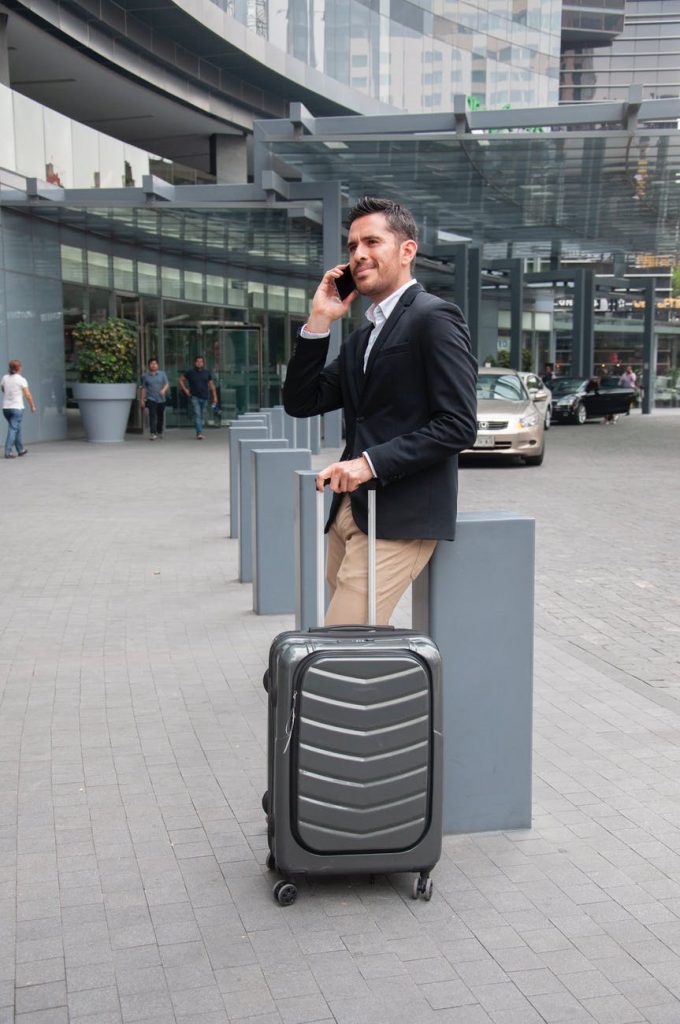Depending on the candidate, the announcement that a role requires a lot of travel might be received as a benefit or a burden. It can be seen as impressive, even glamorous in a way, to spend so much time going from place to place: being a jet-setting go-getter with a full schedule and anecdotes aplenty. Conversely, those who have done plenty of business travel in their free time might well see it as an exhausting procession of delays, discomfort, and overpriced foodstuffs.
Even the most enthusiastic travelers, though, must eventually concede that extensive business travel is difficult to endure. Journeys that first seem exciting will lose their luster. Seats that once seemed luxurious will start causing anticipatory backache. It may be necessary, but the resulting damage to morale can seriously strain everything from internal communications to productivity.
To combat this, then, it’s vital that you do everything you can to improve business travel for your team. Here are some key suggestions to help you do just that:
Cut down on the admin required
When I talk of admin here, I mean all the minor tasks that go into organizing the details of a trip and making it from one stage to the next: tasks like booking tickets, providing personal details, getting supplies, and transporting goods. For the most part, you shouldn’t require your employees to handle these tasks — they should all be figured out ahead of time.
Where things can’t be fully arranged beforehand, it should be as easy as possible for your workers to deal with them. Consider handing out expense cards (along the lines of Soldo) with enough money for food and drink along the way. If you need people to do a lot of driving (in a fleet or not), you should give the drivers fuel cards for networks like Shell (more information on this) so they never need to pay for their own fuel and claim reimbursement later.
Allow travel options where possible
Different people prefer different travel arrangements. Some people like coach travel: slow, relaxing, and a good way to get some sleep. Others prefer flight: relatively expensive and awkward, but optimally fast, allowing maximum free time around it. If you know that you need everyone on your team at a particular place by a particular time, why not let them choose which form of transport they’d like to take? Set a budget, and let them figure it out.
You can also allow people to leave on different days for certain trips, arriving earlier or later than their colleagues. It’s simply about recognizing that people have unique responsibilities and may find it more convenient to alter their arrangements slightly while still being there when it matters.
Do what you can to increase comfort
At a minimum, you should cover the cost of things like travel cushions, blankets, sleep masks, and battery packs for electronic devices (so useful for entertainment). They’re not expensive, but they can make long trips vastly more bearable, making them incredibly cost-effective. Beyond that, though, you should look for other ways to make business travel more comfortable.
One such way is to upgrade the quality of the provided accommodation. Instead of putting everyone up in a cheap motel on a week-long trip, pay for something considerably nicer. Not only will this put everyone in a better mood, but it will also leave them much less likely to be tired and in discomfort when the trip comes to an end.
Ensure that it’s truly worthwhile
Is every single business trip on your calendar absolutely vital? There’s a fair chance that some fixtures of your schedule aren’t quite as valuable as you think, and if you made the decision to push back on them, you could get by perfectly well without requiring your team to go anywhere. You might already do this for work socials: why not extend that idea?
Take client meetups, for instance: you may need to go meet up with a valuable long-term client, and you might like having your team there, but it isn’t ultimately that important. And not only is it costly to cover all that travel but it also inevitably causes a major drop in productivity with everyone out of the office for no clear reason. Clear out any business trips that aren’t truly important for your business: you’ll save money, and your workers will be happier.
The more you can cut back on business travel and make it optimally seamless, the more quickly you can return it to being a refreshing and productive change for everyone (instead of a drain on company profitability). Follow these tips to make some improvements, and your employees will thank you
Author Profile

- Blogger by Passion | Contributor to many Business Blogs in the United Kingdom | Fascinated to Write Blogs in Business & Startup Niches |
Latest entries
 BusinessDecember 12, 2025The Smart SME’s Guide to Future-Proofing Physical Assets
BusinessDecember 12, 2025The Smart SME’s Guide to Future-Proofing Physical Assets FinanceOctober 28, 2025How to Measure the ROI of Your Promotional Product Campaigns?
FinanceOctober 28, 2025How to Measure the ROI of Your Promotional Product Campaigns? Home & LivingOctober 4, 2025Moving Forward When Leicester Family Dynamics Change
Home & LivingOctober 4, 2025Moving Forward When Leicester Family Dynamics Change BusinessSeptember 22, 2025Always-On SMEs: The UK Business Owner’s Guide to Seamless Travel Data for Sales Trips, Trade Fairs & Remote Teams
BusinessSeptember 22, 2025Always-On SMEs: The UK Business Owner’s Guide to Seamless Travel Data for Sales Trips, Trade Fairs & Remote Teams






